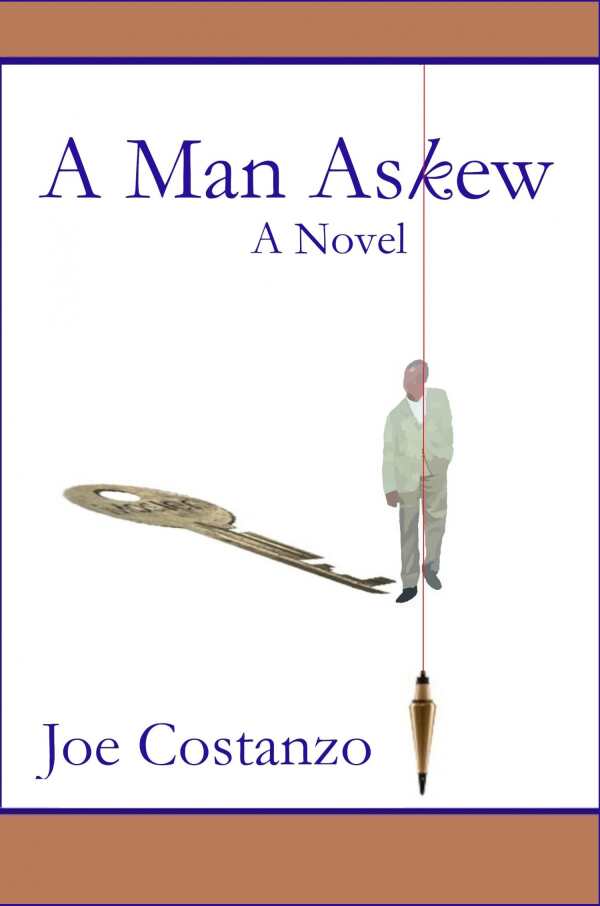A Man Askew
A Man Askew is an intriguing novel in which an everyman’s fortunes take unusual twists.
A downtrodden copy editor investigates his detective father’s past in Joe Costanzo’s brooding novel A Man Askew, about uncertainties in the wake of a shooting.
Dexter is in his forties, divorced, estranged from his children, and employed part-time. He’s concerned about his widowed mother, though she assures him that she’s fine. When an ex-convict who calls himself Novack attends Dexter’s father Burke’s funeral and claims that Burke kept a safety deposit box for him, Dexter agrees to help Novack retrieve the key. But then Dexter is shot, prompting questions about an old carjacking case that brought Burke into a criminal orbit. Meanwhile, Dexter moves into his mother’s basement; she and his teenage son help with his rehabilitation.
Dexter’s stalled circumstances are pitiful but empathetic. They are compounded by unexpected problems. His sometimes dry, resigned reflections direct the novel, with “It could have been worse” becoming the motto for his life. His involvement with the shooting is also ironic: While he was expected to follow in Burke’s footsteps, it was instead his sister who became a police officer, making her more likely to have encountered a retaliatory shooting tied to a past case than Dexter, a mere everyman.
The aftermath of the shooting includes surgery and physical limitations for Dexter, whose body is left “askew.” He develops a morbid curiosity concerning Novack and the crime, despite his family telling him not to dwell on either. He grows isolated and cash strapped, though, and his depressed state slows the story, making it tough to anticipate how he’ll recover. Indeed, his flagging morale sometimes dominates the book, and his use of the old case as a self-conscious distraction loses some of its potency in the course of his on-again, off-again inquiries.
Still, Dexter’s plodding, careful assessments reflect both his sharp-mindedness and his amateur status. He sifts through court records, traces names associated with the case, and visits the safety deposit box. The result is a slow-burning reconsideration of what kind of detective Burke was; new insights hint that he was responsible for wrongdoings. A surprise discovery leads into a provocative thread about Burke’s secrets, though it’s a somewhat futile chase: Due to Burke’s death, Dexter can only speculate about his father’s reasoning for his actions.
The novel’s strength rests in its late focus on tough moral dilemmas, including whether the sins of a father must be visited upon the next generation and whether concealing those sins to protect others is justified. Dexter’s own shifting position from that of a crime victim to a man with gray moral boundaries is intriguing, though the conclusions he draws about what to do with his father’s secrets leave much unresolved.
A serpentine novel about recovering from violence, A Man Askew explores a father’s legacy alongside his adult son’s decision to make amends for him.
Reviewed by
Karen Rigby
Disclosure: This article is not an endorsement, but a review. The publisher of this book provided free copies of the book and paid a small fee to have their book reviewed by a professional reviewer. Foreword Reviews and Clarion Reviews make no guarantee that the publisher will receive a positive review. Foreword Magazine, Inc. is disclosing this in accordance with the Federal Trade Commission’s 16 CFR, Part 255.

